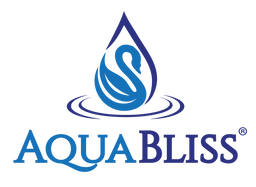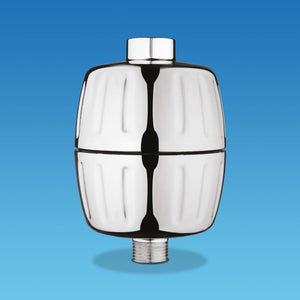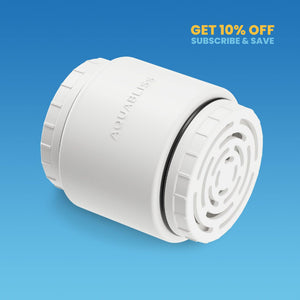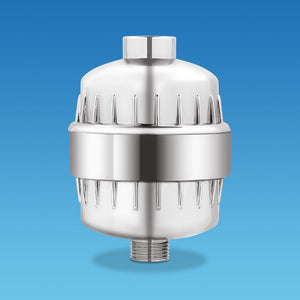Which to pick: Hot or cold shower for sunburn? A cold shower is usually the safest and most effective option. It helps relieve pain, cool the skin, and reduce swelling caused by UV rays. Cold showers help fight inflammation.
While hot water might feel comforting at first, it can make the burn worse. Sunburn affects the skin’s surface and can lead to irritation, inflammation, and peeling. The type of shower or bath you choose can directly affect how your damaged skin heals.
In this sunburn guide, we’ll explain what really works and what to avoid when treating sunburn in the shower.
What Happens to Your Skin When You Get a Sunburn?
Sunburn is sore skin caused by prolonged unprotected sun exposure. When your skin absorbs UV rays, it triggers an inflammatory reaction that damages the skin’s outermost layers.
This leads to redness, heat, swelling, and eventually peeling as the body works to shed damaged cells. You may also notice light pink skin, tenderness, itching, or even severe pain if you’ve spent long hours in the sun.
The skin cells damaged by too much sun can die off. This also increases the risk of skin cancer and skin aging. In fact, repeated sunburns raise cellular damage and the skin cancer risk, including types like melanoma.
That’s why it’s critical to protect your skin from further sun exposure and take the right steps to support the healing process.
Can a Hot Shower Help Relieve Sunburn?

A hot shower might seem comforting, especially if you’re feeling chilly after a day outdoors. But for sunburned skin, it can do more harm than good. Hot water increases blood flow to the area, which can worsen inflammation and make the burn worse.
It may also dry out the skin, stripping away natural oils and delaying the sunburn healing process. Some people feel momentary relief due to endorphin release, but that sensation is short-lived and misleading.
However, warm, not hot, water can sometimes help with hygiene if your skin is sticky from sweat, sand, or sunscreen. Use it cautiously and only briefly, focusing on keeping the temperature low enough not to irritate damaged skin.
Overall, it’s best to avoid hot showers when you treat a sunburn and prioritize cooler methods to support recovery.
Is Lukewarm Water a Good Compromise?
If a cold shower feels too harsh, lukewarm water is a gentle alternative. It helps cleanse the skin without shocking it or increasing discomfort. This option is especially helpful for young skin or fair-skinned people, who may be more sensitive to temperature extremes.
Lukewarm water won’t worsen inflammation and is less likely to trigger stinging sensations. It also supports the removal of sweat, sunscreen, and bacteria without disturbing the skin’s outermost layers.
To finish, always gently pat your skin dry and apply lotion to trap moisture and soothe damaged skin cells.

How Long Should You Shower After a Sunburn?
Keep your shower or bath short, around 5 to 10 minutes. Long exposure to water can dry out the skin and delay the body's healing process. Use low water pressure and avoid scrubbing or rubbing the burn. After rinsing, gently pat the skin dry with a soft towel to avoid further irritation.
Shower Tips to Soothe Sunburned Skin
Make your post-sunburn shower as gentle and effective as possible with these tips:
- Use fragrance-free, gentle cleansers.
- Skip scrubs, loofahs, and washcloths; these can damage already sensitive skin.
- Stick to short showers, no more than 10 minutes.
- Avoid hot water completely to prevent worsening the burn.
- Start lukewarm, then cool gradually.
- Stay hydrated before and after to avoid dehydration and support the healing process.
- Apply aloe vera or plain calamine lotion after drying to soothe and protect the skin.
- Lock in moisture by moisturizing while your skin is still damp.
- Wear loose, comfortable clothing to avoid friction on the skin and burns.
- Stay out of direct sunlight until the sunburn has fully healed.
Can a Shower Filter Help Soothe Sunburn?

Yes, using a shower filter can make a noticeable difference when your skin is sunburned. Tap water often contains chlorine, heavy metals, and other irritants that can aggravate damaged skin.
These substances may strip away natural oils and interfere with the healing process. A high-quality shower filter removes many of these impurities, reducing the risk of further skin irritation from sunburn.
This is especially helpful for people with sensitive skin or those dealing with frequent sun exposure.
AquaBliss offers effective, easy-to-install shower filters designed to support healthy skin, even after you sunburn your skin. Investing in cleaner water is a simple way to protect your skin during recovery and beyond.
What Are the Best Aftercare Practices for Sunburn?
Treating a sunburn doesn’t stop at the shower; proper aftercare is key to helping your skin heal. Start by drinking extra water to combat dehydration. Include sports drinks to replenish electrolytes, especially if your sunburn draws fluid from your body.
Moisturize often using aloe-based gels or lotions without alcohol or fragrance. Avoid picking or trying to peel the burn, even if it’s flaking. Use broad-spectrum sunscreen before going outdoors, even when the sun isn’t out.
Stay out of direct sunlight as much as possible during the healing phase. Support the anti-inflammation response with added antihistamine if possible. Watch for warning symptoms of infection, like oozing pus or red streaks, as these require medical attention.
By taking care of your skin early, you help prevent long-term sun damage and reduce your risk of skin cancer.
What Are Other Ways to Cool Down Sunburned Skin?
Beyond a cold shower, there are other effective ways to ease the discomfort of sunburn. Apply a cold compress to the affected areas for 10 to 15 minutes at a time. Treat the area with aloe vera gel to soothe irritated skin and reduce redness.
Try home remedies like an oatmeal or baking soda bath to reduce inflammation. Using fans or staying in air-conditioned spaces can also help lower body temperature and relieve discomfort.
What Should You Avoid When Treating Sunburn?
Below are some key things to steer clear of:
- Avoid using hot water or taking long showers or baths, which can burn and dry out the skin.
- Never apply alcohol or vinegar.
- Don’t apply ice directly to the skin; it can cause frostbite on already damaged cells.
- Avoid tight clothing and rough fabrics.
- Resist the urge to peel flaking skin, and don’t pop blisters.
- Stay out of the sun, especially during peak hours, to prevent more sun damage.
- Finally, don’t ignore symptoms of infection like pus or severe blisters.
Sunburn Recovery Starts in the Shower
Cold showers are the best remedy to reduce swelling, cool the skin, and relieve pain. Hot water may feel nice at first, but it can trap heat, worsen discomfort, and delay healing. For those sensitive to cold, lukewarm water offers a safe, soothing option.
Keep showers short, avoid harsh pressure, and always gently pat your skin dry. Don’t overlook what’s in your water; a high-quality shower filter from AquaBliss can support your skin’s healing process.
To reduce your risk of skin cancer, protect your skin from the sun with SPF and proper after sun care. Still unsure how to upgrade your post-sun routine? Get in touch with our team, we’re here to help you protect, heal, and feel better fast.







